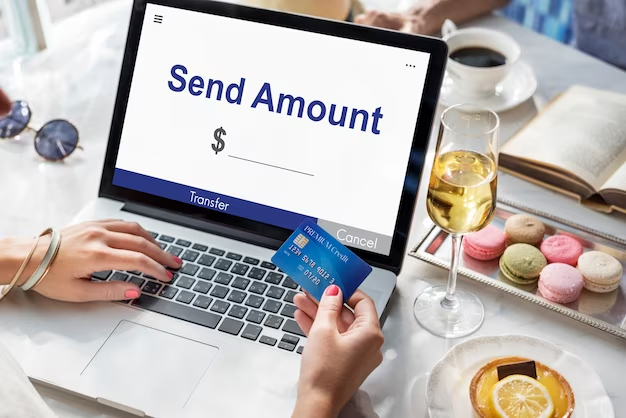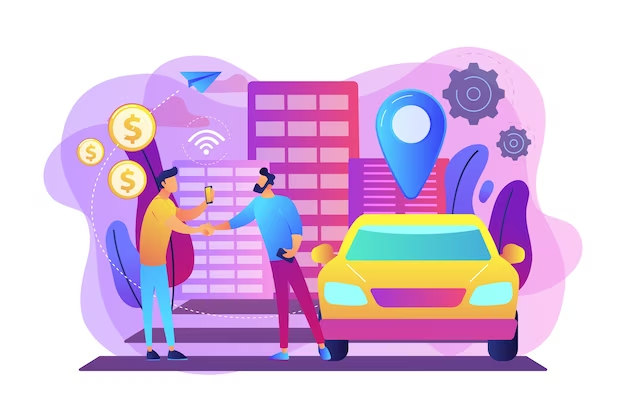Have you found yourself puzzled by the myriad of traffic fines and penalties that can arise from various driving infractions? Understanding the nuances of these fines, and more importantly, how to address them, can stave off the stress associated with traffic violations. In this article, we’ll delve into how you could manage traffic fines effectively and explore the convenience of paying fines online, a solution that could also save you from unnecessary hassle.
Understanding Traffic Fines and Violations
One of the first steps toward managing traffic fines is to be well-versed in the common types of traffic violations and their corresponding penalties. For instance, speeding or running a red light are typical infractions that might land you a fine. Beyond knowing what each violation could entail, it is crucial to understand how these infractions are administered and what your responsibilities are upon receiving a ticket.
- Types of traffic fines and their consequences:
- Speeding: Often has a tiered system where the fine increases with the speed over the limit.
- Red light violations: These can carry heavy fines and could affect your driving record.
- Illegal parking: Can range from minor fines to having your vehicle towed if it’s in a no-parking zone.
- Driving under the influence (DUI): Results in severe penalties, including hefty fines and possible jail time.
- Distracted driving (e.g., using a mobile phone): Penalties for such behavior are becoming more stringent.

If you’ve incurred a traffic fine, promptly checking the details is paramount. Your ticket should provide all the necessary information, including the amount you need to pay and the payment due date. Ignoring these details could lead to increased fines or additional consequences, such as a license suspension. By keeping on top of these checks, you’ll stay ahead of potential issues.
Moreover, the availability of paying fines online has simplified the handling of traffic penalties. This convenient payment method means you can settle your dues from the comfort of your home without having to visit a local authority’s office. Below is a step-by-step guide on how to pay your fines online:
- Steps to Pay Your Traffic Fines Online:
- Verify the ticket: Ensure the information is correct and note the citation number.
- Find the appropriate website: Typically, the ticket will list a website where you can settle the fine.
- Enter your citation number: This allows you to access your fine details.
- Make the payment: You can usually pay with a credit/debit card or an online payment platform.
- Confirm the payment: Make sure to receive a confirmation for your records.
Having the ability to pay fines online not only conserves your time but could also prevent added stress. Missing a payment due to lost mail or simply forgetting to visit the payment center is no longer a concern with online transactions. However, it’s worthy to note that not all regions offer this service, and for some, traditional payment methods may still apply.
In regards to how these fines are structured, a table is helpful in presenting a clear, concise understanding. A breakdown of common fines and their average cost without added penalties provides a reference you can easily check.
| Traffic Violation | Average Base Fine |
|---|---|
| Speeding (1-15 mph over) | $50-200 |
| Running a Red Light | $100-300 |
| Illegal Parking | $30-150 |
| DUI | $500-2000 |
| Distracted Driving | $50-400 |
Remember, these are base fines and could increase depending on the circumstances of the violation or the location where it occurred. Additional fees, court costs, or surcharges often accompany the base amount. It’s vital to consider the full scope of what you could be paying to avoid surprises.

The Consequences of Unpaid Traffic Fines
Neglecting your traffic fines can lead to a series of dire consequences that escalate in severity over time. For starters, additional late fees may accrue, inflating the original amount owed. Next, you could be subjected to administrative actions, such as the suspension of your driving license, which would make it illegal for you to operate a vehicle. In some jurisdictions, unpaid fines could result in a warrant for your arrest, compounding your legal troubles. Furthermore, these matters usually find their way to debt collection agencies, which can significantly impact your credit score, making future financial endeavors, such as loan approvals, challenging.
Avoiding and Reducing Traffic Fines
It’s understandably better to avoid fines altogether, but when that’s not possible, reduction strategies can be a lifesaver. Here’s how to navigate traffic fines before and after they occur:
- Defensive driving courses: Many states offer these courses not only as a remedy to reduce points on your driver’s license after an infraction but also as a proactive measure to lower your chances of getting fined in the first place. Some courses could also result in a discount on your car insurance.
- Legal representation: In certain cases, especially where the fines are substantial or could result in significant points on your license, consulting with an attorney might be beneficial. They can aid in reducing or sometimes even dismissing the fines.
- Prompt action: If you receive a fine, taking swift action by paying it or contesting it, if you believe it was unjust, can prevent further complications. Some jurisdictions offer payment plans or community service options in lieu of payment, which can be helpful for those unable to pay the full amount upfront.
- Court appearance: If you choose to contest a fine, appearing in court may help your case. Showing up in person demonstrates responsibility and gives you the opportunity to plead for a reduced fine, particularly if you have a clean driving record.
- Correction of violations: If your fine is due to a fixable violation, such as a broken tail light, providing proof of the repair can sometimes result in the fine being lowered or dismissed.

Conclusion
In conclusion, managing traffic fines with diligence and awareness can prevent a multitude of problems down the line. Whether it’s understanding how to handle fines promptly, exploring ways to pay them online to avoid late fees, or learning how to contest unjust tickets, responsible handling of these situations will serve you well. Moreover, familiarizing yourself with the law and staying abreast of updates ensures you’re not caught unawares, allowing you to drive with peace of mind, knowing that you are equipped to deal with whatever comes your way on the road.
FAQs
1. How can I check if I have any fines from the municipality? You can check for municipality fines by visiting the official website of your municipality and navigating to the section dedicated to fine inquiries. Typically, you’ll need to enter your personal details or vehicle information to retrieve any outstanding fines.
2. What information do I need to provide to check for municipality fines? Depending on the municipality’s system, you may need to provide your name, address, identification number, vehicle registration number, or a combination of these details.
3. Is there a way to check for municipality fines offline? Yes, many municipalities also offer the option to check for fines offline. You can visit the local municipal office or contact their helpline to inquire about any outstanding fines.
4. How often should I check for municipality fines? It’s a good practice to check for municipality fines regularly, especially if you frequently use municipal services or park your vehicle in public areas. Setting a routine, such as checking monthly or bi-monthly, can help you stay updated on any fines.
5. What should I do if I find I have outstanding municipality fines? If you discover you have outstanding municipality fines, it’s essential to address them promptly. Follow the instructions provided on the municipality’s website or contact their office for guidance on payment options and any necessary steps to resolve the fines.
